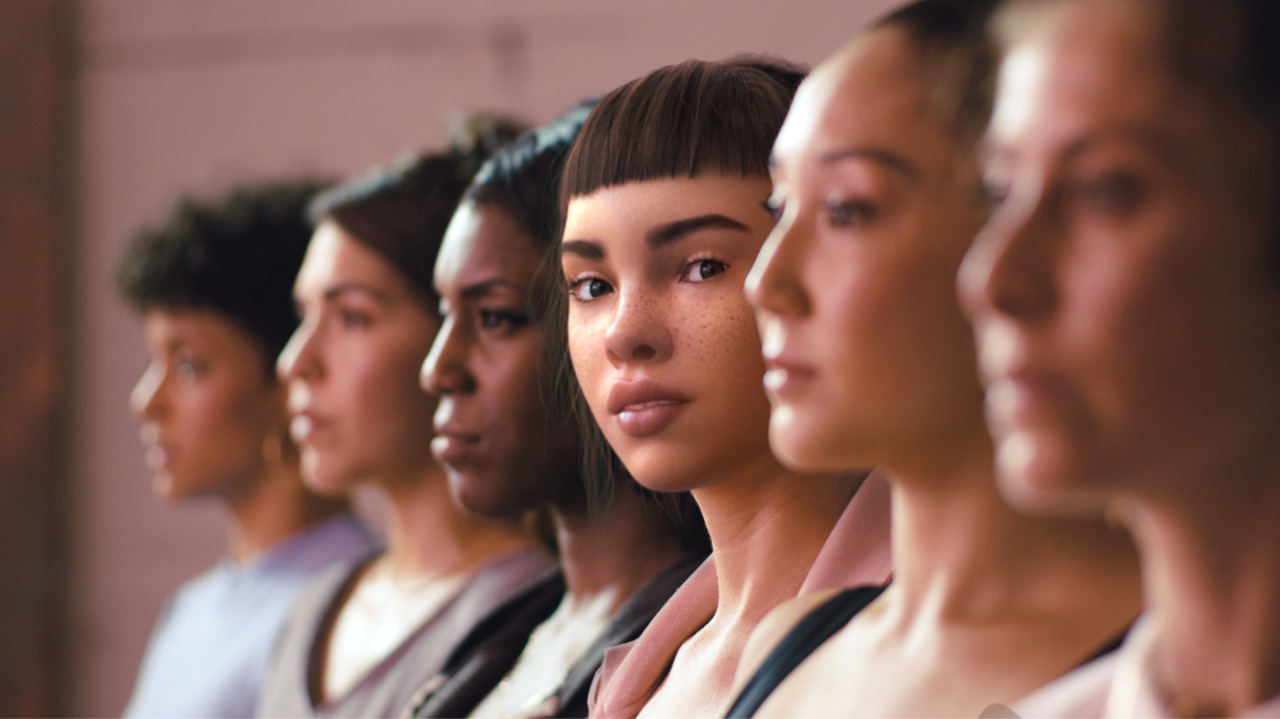
AI takeover of the influencer world
Against the bustle of a crowded social media landscape emerges a spectacle: virtual influencers – and they are already commanding the attention of millions of consumers.
Virtual influencers are developed through advanced technology and CGI, built to fit into the ‘human’ mould. Created to engage with potential consumers, these digital characters rack up millions of followers, fulfilling their ‘influencer’ role by creating promotional content, replying to comments, and even being able to livestream and podcast to online audiences.
It’s still a relatively new phenomenon with room to expand and improve, but virtual influencers are already proving their worth. Public perceptions are promising; according to Savanta’s Youth Omnibus, more than 1 in 3 young people in the UK are aware of the existence of virtual influencers. Of those aware, another 32% claim to follow at least one of these social media personalities – which rises to 41% among 22–25-year-olds.
The blueprint for success: why AI?
High earning potential
Lil Miquela is a social media influencer, who began her career in 2016. She’s reported to rake in an enviable annual income of £9 million and boasts an attractive 2.7 million Instagram followers. With an impressive portfolio of brand partnerships in her arsenal, it’s hardly surprising that she has been named as one of Time Magazine’s Most Influential People. Unsurprising, that is, until you find out she’s not actually a real person; Lil Miquela is a virtual influencer.
In 2019, she featured in Samsung’s #TeamGalaxy campaign. The following year saw the tech giant continue this AI trend with leading robo-influencer ‘Shudu’ promoting the Z Flip phone, which generated 126 million organic views and 24 million engagements.
Far reaching and scandal-resistant
Using AI influencers allows brands to leverage the benefits of digital marketing whilst keeping control over the actions of their ‘influencers’, mitigating the risks of potential online controversy we often see online.
Due to the adaptable nature of AI influencers, such collaborations can also help brands more easily connect with diverse audiences, including those that may otherwise be hard to reach.
How can brands maximise use of virtual influencing?
Brands can make use of existing AI influencers or invest in the technologies to develop their own – an attractive option that lets them fine-tune the AI to align with the brand’s identity and connect with their target audience. And, by partaking in non-promotional content such as podcast appearances or vlogs, they can transcend their role as mere sales conduits to assume a persona that resonates with audiences on a more human level.
Yet, for all the AI charm and seemingly genuine disposition, there’s a cap on authenticity.
Are humans replaceable?
No matter how sophisticated the software, at its core AI is merely a concatenation of code and will never possess the lived, tactile experiences that human influencers do. This puts a notable limit on the long-term success of this phenomenon, as it’s not straightforward to overcome.
Though not necessarily impossible: by working alongside A-list celebrities like Bella Hadid and Millie Bobby Brown, fascination remains high, and is steadily gaining ground. But will a celebrity endorsement be enough to merit trust? Ultimately, the verdict is with the consumer, who will be the true decider of whether this is just a passing trend or a force to be reckoned with.
Final thoughts: the path of virtual reality influencing may not be entirely smooth sailing, undoubtedly due to its novelty. It can be challenged by concerns about authenticity and long-term impact, but they also incur minimal costs – making it a positively lucrative short-term strategy.
We expect the number of AI influencers to soar and become increasingly mainstream as new technologies develop even further. These evolving technologies are pushing the boundaries of AI influencing, expanding the possibilities beyond imagination.





